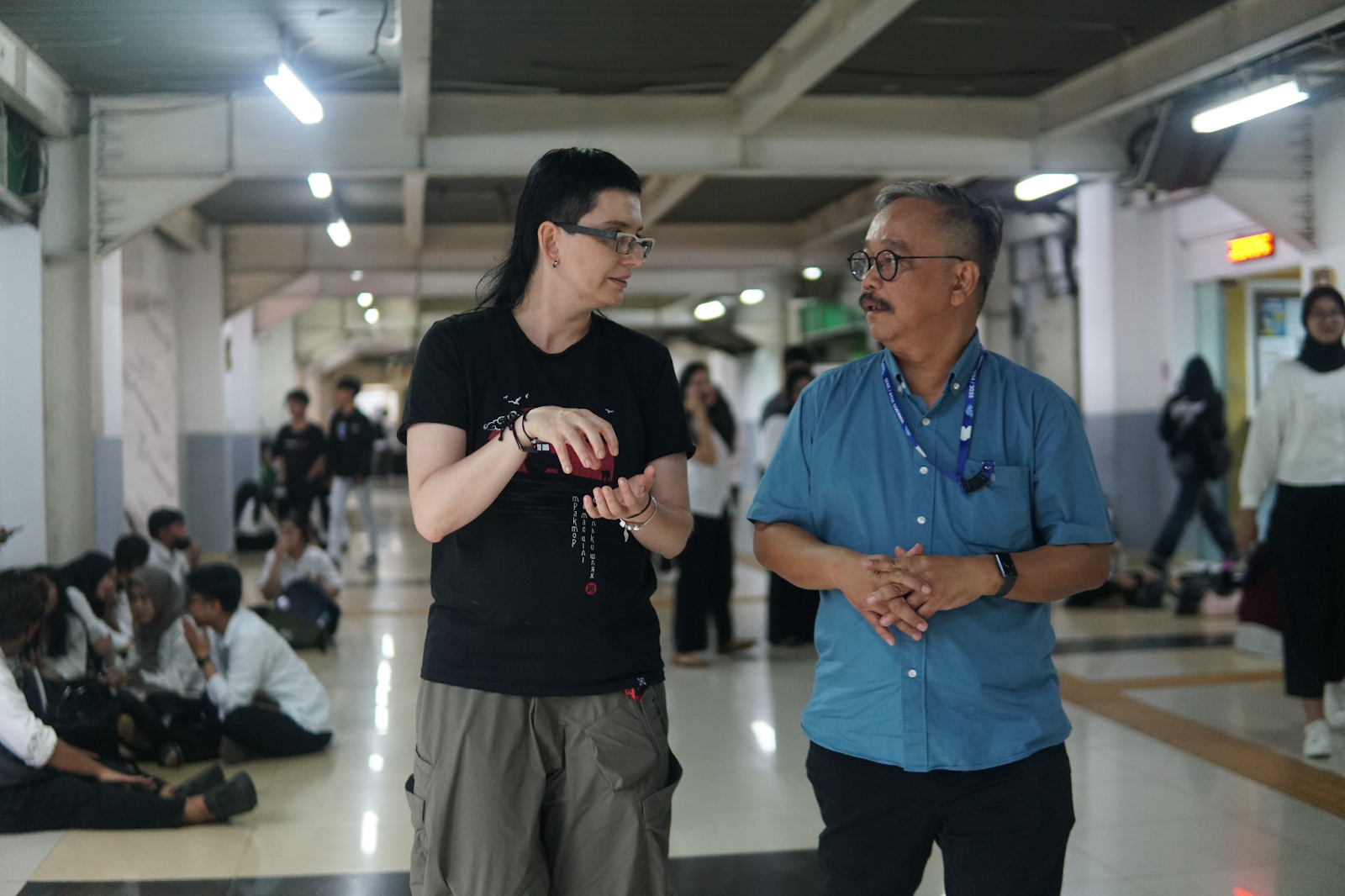Still from the film “The Act of Killing” (2012)
The man on the screen smiles at the camera. He has been offered the chance to make a documentary based on his own life. His fellow villagers are cast as actors. Anwar Congo is a gangster. He himself does not know how many people he killed in 1965, but he believes it was more than a thousand. He demonstrates on a live person how he strangled prisoners with a wire, because it was much cheaper than shooting them, and he did not have to clean up the blood afterwards. This is the beginning of the Dutch film The Act of Killing, an Oscar nominee that depicts the darkest page in Indonesian history. Schools do not teach about it - even now. “Only at university do we begin to talk about it,” Andy Akdian, a professor of modern history, tells me. “In school, they just teach that there were changes in the political environment. Sukarno was replaced by Suharto, and the old order was replaced by a new order. All they talk about in school is the murders of generals. That's it.”
On September 30, 1965, a group of Indonesian military personnel calling themselves the September 30 Movement (Gerakan 30 September, or G30S) kidnapped and killed six high-ranking army generals, accusing them of plotting a coup against President Sukarno. The generals' bodies were found in a well near Jakarta. These murders became the pretext for a large-scale anti-communist campaign led by General Suharto, which escalated into mass repression and the killing of hundreds of thousands of people suspected of sympathizing with the Indonesian Communist Party. Only those Indonesians whose families had enough resources to send their children to higher education institutions have a chance to learn about this.
“When I was still in school, I hadn't heard anything about it,” Professor Akdian continues. "But once I got to university, I understood everything and started to remember stories I had heard before: someone's father had become a political prisoner, someone had lost a family member, things like that. But I didn't connect these stories in any way; I didn't know anything for sure." And only in response to a direct question does he confirm that his own grandfather was imprisoned on charges of communism. He was never a communist, but he held a good position in Sukarno's government, and they wanted to undermine him, so such an accusation was the easiest way to do so. Once in prison, Professor Akdian's grandfather died for his family, because any potential connection with a communist had serious consequences: it was impossible to find a new job, get married, or survive. Many Ukrainians know well what it means to be the family of an “enemy of the people.” Significantly, these purges took place with the full approval of the United States and Great Britain. The CIA provided the Indonesians with lists of names for elimination, and declassified documents indicate that the American embassy was well aware of what was happening. But in the context of the Cold War, the destruction of the largest communist party outside the socialist bloc (in Indonesia, it had three million members) was considered expedient.

The new order established by General Suharto ended in 1998, but the fear of stigmatization remains to this day. All attempts by survivors to initiate public discussion have failed. Although every Indonesian can now watch The Act of Killing for free on YouTube, in reality, only a few do so. I ask Professor Akdian how many of his students will consider this new knowledge about the terror an important part of their collective memory. He hesitates briefly, then replies: probably about five percent.
For the rest, part of their mentality has become a tendency to avoid difficult topics and to perceive the harsh suppression of opponents as an acceptable tool for maintaining stability. That is why stories about Russia's repression in the occupied Ukrainian territories are met with palpable indifference here. Yes, it's bad, but that's what big countries do.
Until the end of his life, the gangster Anwar Kongo participated in public events and was warmly regarded by the former vice president. It was not possible to bring him to criminal justice after the release of the film, which is essentially one huge sincere confession without a hint of remorse: in March 2014, Indonesian police chief General Sutarmanto stated that the statute of limitations had expired on these charges.